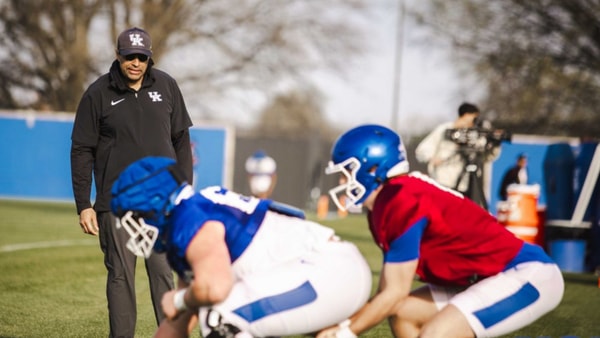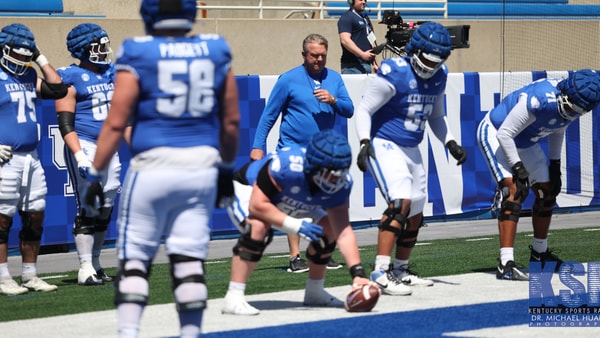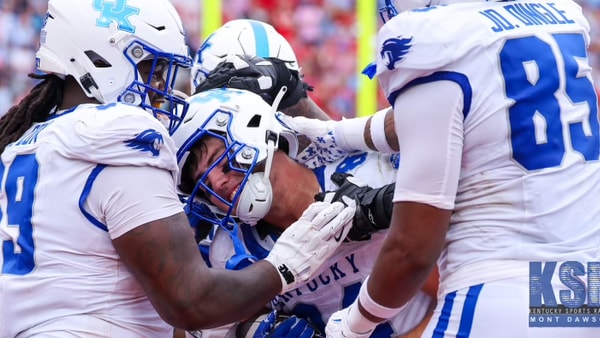SEC certainly sounds all-in on 8-game conference model

Many big topics were discussed at SEC spring meetings with the league dealing with the House settlement, revenue-sharing, the transfer portal’s future, and what the College Football Playoff will look like in 2026.
There was also more schedule talk.
The 2026 college football season is 13 months away and the SEC still hasn’t decided on a scheduling model for that season. In his state of the union address, SEC commissioner Greg Sankey revealed that a decision will be made soon.
“It won’t linger terribly much longer. We have to make decisions about the ’26 season and adjust,” Sankey said. “If we’re going to go to nine games, then there have to be games moved or rescheduled. If we stay at eight, probably a little easier on that part of the logistics.”
Throughout this lingering discussion over the last few months, there has been concern about playoff selection and what the format would ultimately be in 2026. Meanwhile, other conferences have been outspoken about wanting the SEC to go to a nine-game schedule if the field expands to 14 or 16 teams. Sankey and his members appear to be standing their ground during talking season.
“Eight or nine games, ultimately I’m not making that decision either,” Tennessee head coach Josh Hepuel said on Tuesday at the College Football Hall of Fame. “But I think the commissioner did a really good job of kind of showcasing what an eight-game schedule looks like inside of this league and the historical data of how different that is from maybe playing a nine-game conference schedule in another league.”
“I like the idea of nine. My concern with the idea of nine is how are we picking the 12 or 14 teams and who’s picking them,” Georgia head coach Kirby Smart told media members on Tuesday. “And what do they value? Because I don’t think we saw value in adding nine more losses to our league last year in terms of the way they picked the teams.”
There is no simple decision. Everything is tied together with a picture as clear as mud. Playoff expansion discussions in a public forum continue as power conference leaders have yet to come to an agreement on a future model. This has been spotlighted during talking season. There is a strong possibility that the SEC continues to kick the can down the road on the long-term scheduling model in the conference where everything just means more.
For Kentucky, this would mean protection for the Governor’s Cup series. If the league required nine conference games, odds are high that the conference mandate where each team must play at least one non-conference foe from a power league would be eliminated. That would likely mean the end to the Louisville game but it’s not just that non-conference rivalry that would be threatened. Florida (vs. Florida State), Georgia (vs. Georgia Tech), and South Carolina (vs. Clemson) all have in-state rivalries that could be in jeopardy if the league goes to a nine-game conference model. There are also future non-conference matchups locked in that would force some teams to play 11 games against power conference foes. Cancellations would be required. That will cost money in an era where everyone is scratching and clawing to find the revenue needed to pay athletes.
Top 10
- 1New
Jeremy Pruitt
NCAA makes request in case
- 2
Greg Sankey
Addresses Tony Petitti 'rift'
- 3Hot
Kristen Saban
Reacts to dad's rumored return
- 4
Urban Meyer
Strong take on Saban return
- 5Trending
Dave Portnoy
Announces FOX partnership
Get the Daily On3 Newsletter in your inbox every morning
By clicking "Subscribe to Newsletter", I agree to On3's Privacy Notice, Terms, and use of my personal information described therein.
The SEC certainly seems determined to make decisions through the playoff prism. Playing an extra league game simply has more cons than pros at this current juncture. That will require the league to get creative in 2026 after keeping the eight-game schedule model fairly static in 2024 and 2025. Some long rivalries might have to take a year or two off. Could the 1-7 model be installed?
The league seems ready to move forward with eight games.
“Certainly you’ve got to balance the ability to play our conference and be able to travel and experience different sites,” said Heupel. “I’m going to leave that to the commissioner to find the right balance on that side of it.”
We should have a final solution soon.
Luckett’s proposed permanent rivalry model
The 1-7 model would include one permanent opponent for each SEC team. That foe would appear on your schedule every year with the other 14 teams in the league rotating on and off the schedule on a yearly basis.
This is my proposed permanent rival model.
- Alabama-Auburn
- Arkansas-Missouri
- Florida-Georgia
- Kentucky-South Carolina
- LSU-Texas A&M
- Ole Miss-Mississippi State
- Oklahoma-Texas
- Tennessee-Vanderbilt
Tennessee-Alabama, Tennessee-Kentucky, Alabama-LSU, Auburn-Georgia, Florida-Tennessee, LSU-Ole Miss, and Texas-Texas A&M would become every other year games in this schedule format. The lack of protection for these important secondary rivalries would be a big problem for the league. That is the one huge con in this 1-7 model.
But there might not be another way if the eight-game structure is locked in full-time. Or we could just see the SEC juggle the schedule yearly to protect these rivalry contests until the timing is right to jump to a nine-game format.
This is a mega-conference side effect. Nine games feels like the most sustainable next step but the SEC doesn’t seem to believe the timing is right for that move.








Discuss This Article
Comments have moved.
Join the conversation and talk about this article and all things Kentucky Sports in the new KSR Message Board.
KSBoard